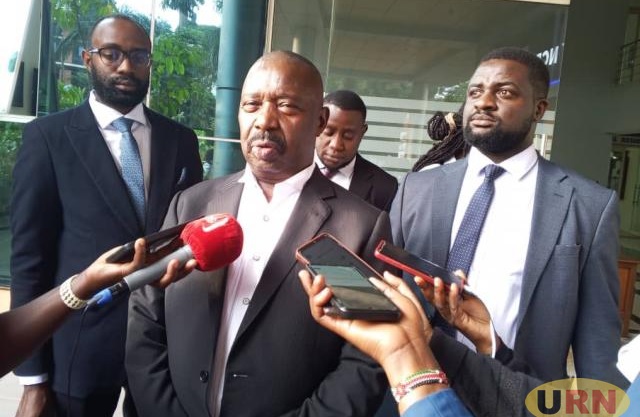
Kampala, Uganda | THE INDEPENDENT | Over 300 Balaalo cattle keepers have sued the government, challenging a recent eviction directive which they say was issued without a prior verification process to determine land ownership or the legality of settlement in Northern Uganda.
In their application filed before the Civil Division of the High Court in Kampala on Tuesday, the cattle keepers say the lawsuit follows the renewed enforcement of an executive order first issued by President Yoweri Museveni in May 2023.
The order called for the eviction of pastoralists—primarily the Balaalo—accused of illegally occupying land in the region, failing to fence their farms, and damaging community livelihoods. After a temporary pause to allow for regulatory checks, the eviction drive resumed in 2025.
Some of the applicants include Franco Namanya, John Ssenyonga Gonzaga, Steven Bugingo, Rudasingwa Dennis Joshua, Mugundu Yowasi, Joy Mbabazi, James Kamugisha, Geoffrey Murangira, Sam Kigambo, Peter Tumusiime, and Benon Muchomboro.
The applicants say they are now facing a June 25, 2025 deadline issued by Major General Felix Busizoori, Commander of the UPDF 4th Infantry Division, and supported by Police Commissioner Ocaya Phillip, to leave the region or face forceful removal. They also cite a 14-day ultimatum allegedly issued by Dr. Kenneth Omona, Minister in charge of Northern Uganda, without consultation or legal hearings.
Through their legal representatives—Mwesigwa Rukutana and Company Advocates—the Balaalo argue that the enforcement is being conducted without due process, violating their constitutional rights to property, fair hearing, and freedom of movement. They maintain that no verification exercise was carried out to assess whether they are lawful settlers, despite many of them having invested significantly in the region.
The affected cattle keepers report that they have lived peacefully among local communities and have established permanent infrastructure, including fencing, water points, dip tanks, and homes. They also claim to pay local taxes and contribute to the regional economy through livestock trade and milk production. According to the court documents, more than 400,000 head of cattle could be affected by the evictions, potentially disrupting local markets and livelihoods.
The applicants say the directive targets them unfairly based on ethnicity, while other groups engaged in animal husbandry under similar arrangements have not been subjected to eviction.
The cattle keepers are now seeking a High Court injunction to halt the eviction process pending a judicial review of the legality and fairness of the directive. Court records further indicate that it was ordered the eviction would occur before verification of the cattle keepers’ proprietary and possessory interests in land had been completed.
However, the applicants argue that the order was made without any consultations and without allowing the Balaalo to explain how they acquired their respective interests in land—whether or not they have complied with the conditions set in the previous Executive Order Number 3 of 2023—and without a chance to demonstrate that some of them had acquired Certificates of Compliance issued by relevant authorities and signed by the Minister.
“The Applicants are aggrieved by the above directives and state that they infringe or threaten to infringe on their fundamental and other human rights and freedoms, as they violate the following Articles of the Constitution,” reads the document.
Through their lawyers, Mwesigwa Rukutana, Brian Rubaihayo, and Edgar Ayebazibwe, the applicants want the court to step in and protect their rights. They are seeking an injunction directing authorities to stop evicting them from the land until a thorough verification process is conducted to ensure their rights are protected.
They also want the court to remind authorities to respect their fundamental rights, including the right to a fair hearing, the right to property, and the freedom to move and settle wherever they choose. Additionally, they are asking the court to grant any additional protection it deems necessary to safeguard their rights and freedoms.
The Attorney General, who has been listed as the sole respondent in the case, is yet to be summoned to file the government’s defense. The matter is also yet to be fixed for hearing before a Judge of the High Court.
*****
URN
 The Independent Uganda: You get the Truth we Pay the Price
The Independent Uganda: You get the Truth we Pay the Price





